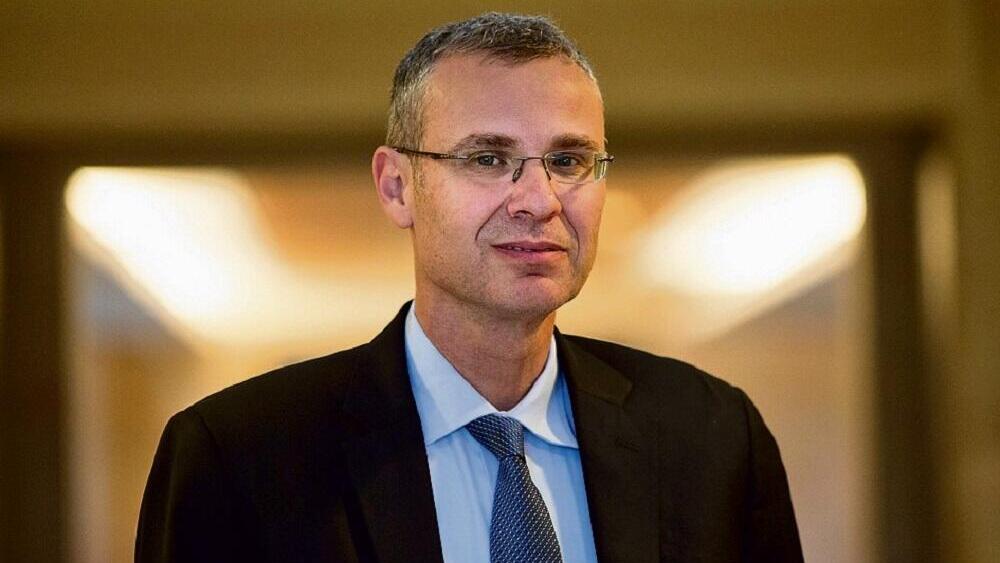Prime Minister Benjamin Netanyahu underwent surgery overnight between Sunday and Monday under full anesthesia at Hadassah Ein Kerem Hospital in Jerusalem, after a hernia was discovered during an examination on Saturday evening. While he was unconscious, his position was filled by Justice Minister Yariv Levin, who also holds the title of deputy prime minister.
At close to 2:00 a.m., the hospital announced that "the hernia surgery of the prime minister was successfully completed." Prof. Alon Pikarski, the head of the surgical department at Hadassah Ein Kerem, performed the surgery; he said that "the surgery went as expected and was successful and the Prime Minister is awake, recovering and talking to his family."
Netanyahu's office said Sunday that the hernia was discovered during a "routine examination" on Saturday night, and that in consultation with his doctors it was decided that he would come to Hadassah and undergo the surgery.
Sources around Netanyahu said that he did not feel any pain. Ynet has learned that the examination was conducted by the prime minister's personal physician Dr. Zvi Herman Berkowitz after Netanyahu reported discomfort in his abdomen. Ministers who attended the Cabinet meeting Sunday morning reported that Netanyahu appeared "completely fine" to them, and they did not notice anything unusual about him.
The surgery involves a recovery of at least one day. Until the surgery, Netanyahu continued with his schedule - and Sunday evening he and his wife met in his office in Jerusalem with the families of the kidnapped soldiers, held a press conference and participated in the discussion of the War Cabinet.
Netanyahu addressed his health condition at Sunday night's press conference , and when asked if it was appropriate to reveal his medical report, he said: "My medical report is public and known. There is a lot of trolling here, there is no limit to trolling." According to the prime minister: "I underwent an examination and I thank the people who managed to call, including reporters, and inquire about my health. I will pass the treatment successfully and return to action very quickly."
2 View gallery


Justice Minister Yariv Levin filled in while Netanyahu was under anesthesia
(Photo: Alex Kolomoisky)
Cabinet Secretary Yossi Fuchs held a telephone referendum last night between the ministers to confirm the appointment of Justice Minister Levin as Acting Prime Minister, while Netanyahu is being operated on. In an unusual move, Economy Minister Nir Barkat refused to support the temporary appointment of his colleague from the Likud, without explaining why.
Levin filled Netanyahu's place during the surgery. However, in the case of inability to serve due to lack of medical fitness, the law does not provide for an acting prime minister, since Netanyahu has never been reluctant to appoint one for himself. This means that when an incumbent prime minister is in confinement due to a medical reason, the ministers must convene and one of them, who is also a member of the Knesset, is chosen as a temporary deputy for about three months.
In July, Levin served as interim prime minister for an hour and 20 minutes , while Netanyahu underwent a procedure to implant a pacemaker. In January 2023, Netanyahu underwent a routine gastro examination under a partial anesthesia, during which former minister Aryeh Deri filled his place.
Netanyahu at age 74 underwent a similar surgery in August 2013. A hernia, also referred to as a rupture, bulge or herniation, occurs when an organ pushes through the abdominal wall. Between 5%-10% of the population suffer from an inguinal hernia. A man's risk of developing an inguinal hernia during his lifetime is about 25%, while a woman's risk is less than 5%. The only treatment for hernia repair is surgery, and this is one of the most common surgeries.


